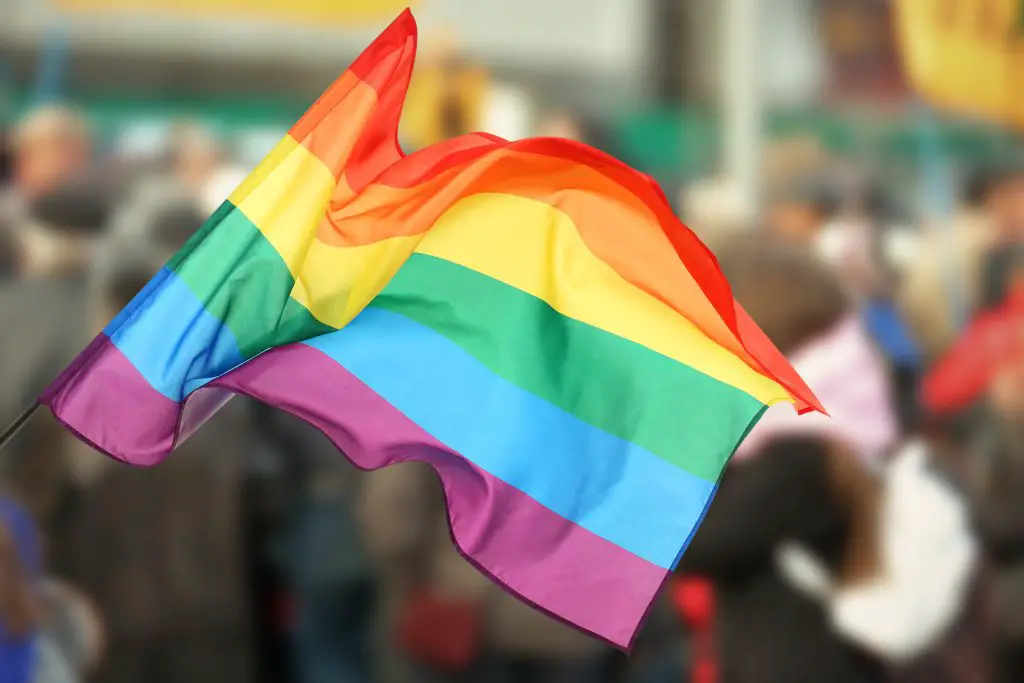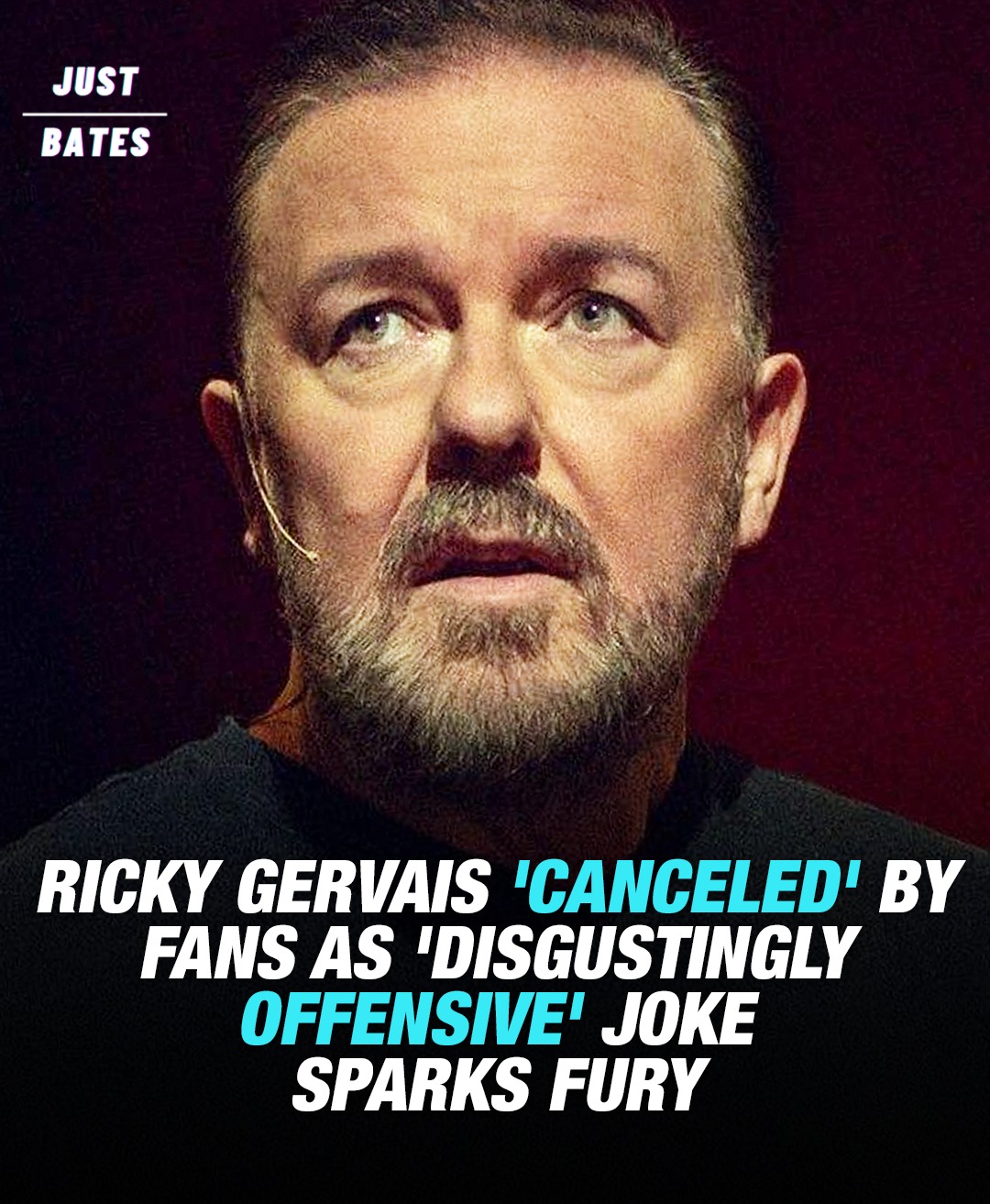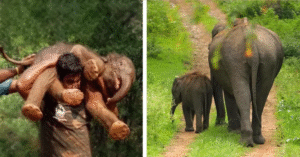Ricky Gervais is facing backlash after a joke from his Netflix comedy special SuperNature has been deemed “outrageously offensive,” leading to widespread outrage from LGBTQ rights groups and calls for him to be “canceled.” The controversy centers on the comedian’s provocative remarks on transgender issues and HIV, which some critics argue go beyond the boundaries of humor and into harmful rhetoric.
SuperNature has been accused of hiding “anti-trans rants” as comedy, with GLAAD labeling it “dangerous.” The LGBTQ advocacy group criticized Gervais for spreading misinformation about HIV and making derogatory statements about transgender individuals. In their statement, GLAAD condemned the special, saying, “We watched the Ricky Gervais ‘comedy’ special on Netflix so you don’t have to. It’s full of graphic, dangerous, anti-trans rants masquerading as jokes.”
Gervais Defends His Humor
Known for his controversial comedic style, Gervais responded to the criticism, defending his use of irony in comedy. Before diving into his routine, he explained his approach to humor: “That’s when I say something I don’t really mean, for comic effect, and you, as an audience, you laugh at the wrong thing because you know what the right thing is. It’s a way of satirizing attitudes.”
Despite facing backlash, Gervais maintains that he supports trans rights, stating in an interview with The Guardian, “Full disclosure: in real life, of course, I support trans rights. I support all human rights, and trans rights are human rights. Live your best life.” However, some of his comments in SuperNature contradicted this message, such as when he joked, “Use your preferred pronouns. Be the gender that you feel that you are. But meet me halfway, ladies: lose the c***.”
 Ricky Gervais has been ‘canceled’ after his ‘outrageously offensive’ joke sparked fury. Credit: Alamy
Ricky Gervais has been ‘canceled’ after his ‘outrageously offensive’ joke sparked fury. Credit: Alamy
GLAAD and Others Speak Out
GLAAD, along with other LGBTQ advocacy groups, has criticized Netflix for hosting content that they claim incites hate and spreads misinformation. The organization urged Netflix to enforce its own policies when it comes to comedy, arguing that platforms must be held accountable for giving a stage to comedians who use their platform to attack marginalized groups.
Alexis Rangel of the National Center for Transgender Equality also joined in the criticism, warning that Gervais’s jokes could perpetuate “dehumanizing myths about transgender people” and contribute to discrimination and violence against the community.
In response to the outrage, Gervais dismissed concerns about words being considered violence, arguing, “These people are virtue signaling … they’re basically saying that minorities don’t have a sense of humor, which is so patronizing.”
Comparison to Dave Chappelle’s Controversial Special
 Ricky Gervais’s Netflix comedy special has come under fire from LGBTQ rights groups, with GLAAD labeling it as ‘dangerous.’
Ricky Gervais’s Netflix comedy special has come under fire from LGBTQ rights groups, with GLAAD labeling it as ‘dangerous.’
The backlash against SuperNature echoes the controversy surrounding Dave Chappelle’s 2021 Netflix special, The Closer, which also included jokes about transgender people. The special led to protests, staff walkouts, and an update to Netflix’s corporate culture guidelines. However, CEO Ted Sarandos defended Chappelle’s special, stating, “You can’t please everybody or the content would be pretty dull. I do think that the inclusion of the special on Netflix is consistent with our comedy offering.”
Despite the uproar, Gervais doesn’t appear worried about facing “cancellation.” In an interview on the Stick to Football podcast, he stated, “I’m aware of it, but I can justify everything. I don’t go out there and just say the first thing that comes to my head, thinking there is no consequence … Everything I do, I’ve got to be able to go, ‘This is why it’s okay.’”
Gervais believes that true cancellation only happens when someone breaks the law: “Some people didn’t like it, fine. You actually have to break the law to be properly canceled. Otherwise, some people didn’t like it, that’s fine, it’s the way of the world.”
Controversial Jokes and Backlash
Gervais is no stranger to making contentious jokes. In SuperNature, he poked fun at transgender women, referring to them as “the new women” and making crude remarks about their anatomy. He also made controversial comments about HIV, claiming that AIDS in the 1980s was “f***ing amazing” compared to today’s attitudes toward the disease.
One of the most divisive moments in the special occurred when Gervais referred to “old-fashioned women” as “the ones with wombs,” followed by a crude joke about trans women. He also mocked a situation where a woman objects to sharing a bathroom with a trans woman, quipping, “Well, his p**is.”
These jokes have been met with outrage, with critics accusing Gervais of using his platform to spread harmful stereotypes and contribute to the marginalization of already vulnerable communities.
Gervais’s Continued Provocative Humor
Despite the backlash, Gervais’s style remains unchanged. He continues to push boundaries with his comedy, making jokes about sensitive topics that others may shy away from. His previous tour, Mortality, included similarly controversial material, and he shows no signs of stopping.
Gervais remains unapologetic about his approach to comedy, insisting that humor is a way of addressing difficult subjects and making them more palatable. “It’s like I’m taking them by the hand through a scary forest, but it’s alright in the end, and we can all laugh about it. That’s what comedy’s for, to get you through scary things,” he said.
Conclusion
The controversy surrounding Ricky Gervais’s SuperNature special highlights the ongoing debate about the limits of comedy and the responsibilities of entertainers in today’s socially conscious climate. While Gervais stands by his right to make jokes on taboo subjects, many believe his humor crosses the line into harmful rhetoric that can incite hate and discrimination.
As the debate over comedy and its impact continues, Gervais’s unapologetic stance raises important questions about artistic freedom, cancel culture, and the fine line between humor and harm.
For more engaging content, check out these articles:
- Man Loses 360 Pounds Naturally: Internet Rallies to Support His Next Step
- Tammy Hembrow’s Bikini Photos Are Stirring Controversy: Here’s Why Everyone’s Talking
- The Hidden Meaning Behind Princess Diana’s Cannes Gown: A Heartfelt Farewell to Grace Kelly
- Science Confirms Kelly Brooks’ Perfect Body: But the Real Message is Bigger Than Beauty


